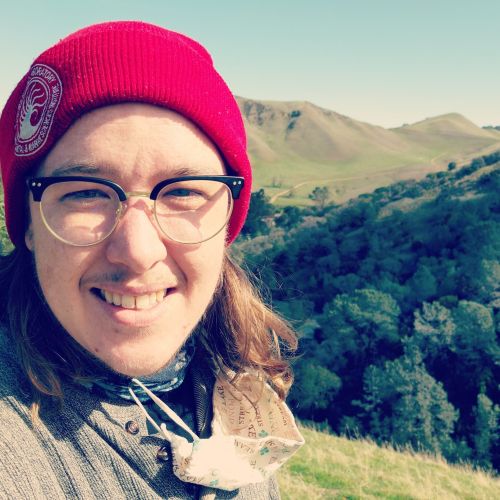- Assistant Professor
- Coastal Institute, Office #116
- Phone: 860.300.7520
- Email: shelby_rinehart@uri.edu
- Office Location: Department of Natural Resources Sciences
Biography
Shelby Rinehart is an Assistant Professor of Watershed Ecology at the University of Rhode Island. Dr. Rinehart is a broadly trained environmental scientist, with a strong background in population biology, community ecology, biogeochemistry, ecohydrology, and environmental ethics. He has worked across diverse ecosystems in Rhode Island, California, Alabama, Mississippi, New Jersey, Pennsylvania, Isreal, and Norway, with a focus on aquatic ecosystems (especially tidal habitats), drylands, and urban forests. Dr. Rinehart received his B.Sc. in Biological Sciences from the University of Rhode Island in 2013. He then completed his Ph.D. in Ecology from the University of California Davis and San Diego State University in 2018, where he was supported by an NSF Graduate Research Fellowship. Dr. Rinehart received a Zuckermen Postdoctoral Fellowship, Minerva Center for Movement Ecology Postdoctoral Fellowship, and Lady Davis Trust Fellowship to complete his postdoctoral work at The Hebrew University of Jerusalem. He subsequently worked as an Associate Science Advisor at Westlands Water District (Fresno, CA), a Postdoctoral Associate at the University of Alabama, and an Assistant Professor at Drexel University.
Research
Dr. Rinehart’s research group aims to understand how organismal biodiversity can influence critical ecosystem functions and services. In particular, we seek to bridge the gap between community ecology and ecosystem ecology to understand how animals, as consumers and ecosystem engineers, can influence ecosystem-level processes, like carbon and nitrogen cycling. We use model invertebrate animal communities in a wide range of ecosystems, including tidal marshes and drylands, to mechanistically test the pathways through which animals can affect the fate of nutrients on the landscape. For instance, we have projects evaluating how burrowing crabs affect the development of carbon and nitrogen cycling in restored salt marshes and how snail consumers affect the carbon dynamics of microphytobenthos across environmental gradients.
Lab website: https://www.shelbyrinehartecology.com/
Selected Publications
(*co-first authors, ^student mentee)
- Sharbaugh*^, M.C., S. Rinehart*, J.M. Dybiec^, and J.A. Cherry. 2025. Burrowing crab effects on plants and sediments peak in early successional ecotones along a chronosequence of tidal marsh restoration. Ecosystems.
- Fulweiler, R.W., S. Rinehart, J. Taylor, M. Kelly, M. Berberich, N.E. Ray, A. Oczkowski, S. Balint, A. Geisser, M. Benavides, M. Church, B. Loeks, S. Newell, M. Olofsson, J. Oppong, S.S. Roley, C. Vizza, S. Wilson, P. Grofmman, J.T. Scott, and A. Marcarelli. 2025. Global importance of nitrogen fixation across inland and coastal waters. Science.
- Rinehart, S., J. M. Dybiec^, J. Walker, L. Simpson, and J.A. Cherry. 2024. Effects of burrowing crabs on coastal sediments and their functions: a systematic meta-analysis. Ecosphere. 15: e4927. doi.org/10.1002/ecs2.4927
- Rinehart*, S., J. M. Dybiec*^, P. Richardson*^, J. Walker*, J.D. Peabody, and J.A. Cherry. 2024. Researcher effects on the biological structure and edaphic conditions of field sites and implications for management. Ecosphere. 15: e4750. doi.org/10.1002/ecs2.4750
- Rinehart, S., J. M. Dybiec^, B. Mortazavi and J. A. Cherry. 2023. Stratified vertical sediment profiles increase burrowing crab effects on salt marsh edaphic conditions. Ecosphere. 14: e4431. doi.org/10.1002/ecs2.4431. Rinehart, S., N.D. Shamir-Weller^, and D. Hawlena. 2022. Snail mucus increases the CO2 efflux of biological soil crusts. Ecosystems. 25: 537-547. doi.org/10.1007/s10021-021-00670-4

